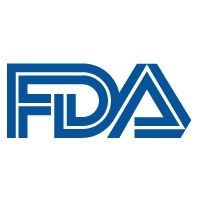FDA Requires Olysio Label Update
The US Food and Drug Administration announced recently that labeling for the hepatitis C drug Olysio has been updated to reflect that higher plasma exposures have been recorded in patients of East Asian ancestry.

The US Food and Drug Administration announced recently that labeling for the hepatitis C drug Olysio has been updated to reflect that higher plasma exposures have been recorded in patients of East Asian ancestry.
The pharmaceutical company Janssen Therapeutics makes Olysio, an NS3/4 protease inhibitor known generically as simeprevir. The FDA first approved Olysio in late 2013 for treatment of hepatitis C, and about a year later, the agency approved the drug in combination with Sovaldi — a Gilead Sciences drug – for the treatment of chronic hepatitis C infection.
“Patients of East Asian ancestry exhibit higher simeprevir plasma exposures but no dosage adjustment is required based on race,” states an FDA release about the label update.
Drug labeling required by the FDA contains important information about a drug, such as indications, dosage, adverse events and warnings, as well as use in specific populations. The updated label covers data on pharmacokinetic, safety and efficacy, in particular among treatment-naïve adults of East Asian ancestry who have chronic infection of hepatitis C genotype 1.
A 2.1 fold higher mean plasma exposure of simeprevir was recorded in patients of East Asian ancestry who were infected with hepatitis C and participated in a phase 3 clinical trial held in China and South Korea, according to the FDA release. Hepatitis C is a bloodborne virus that if left untreated can seriously inflame and damage the liver over time.
The safety profile of East Asian participants in the trial that involved the use of Olysio in combination with Peg interferon-alfa and ribavirin “was similar to that of the pooled Phase 3 populations from global trials,” the release states.
However, the data results showed a higher incidence of the laboratory abnormality hyperbilirubinemia in patients who were given 150 mg Olysio plus Peg IFN-alfa and ribavirin when compared to those who were given Peg IFN-alfa and ribavirin along with placebo.
Until recently, peglayted interferon and ribavirin were part of the mainstay of treatment for chronic infection of hepatitis C before newer direct-acting antiviral drugs were developed and approved in recent years. These newer drugs work faster and have higher cure rates than the older regimens, which typically required 24 to 48 weeks of treatment.
In the Phase 3 trial mentioned above, 99 out 151 patients (66%) who were given 150 mg of Olysio plus Peg IFN-alfa and ribavirin had elevated total bilirubin in all grades compared to 40 out of 152 patients (26%) who were treated with placebo plus Peg IFN-alfa and ribavirin, according to the FDA.
The elevated levels of bilirubin were mainly Grade 1 or Grade 2, according to the FDA release. Grade 3 elevations were recorded in 9% (13/151) of patients who were in the Olysio arm of the study and in 1% (2/152) of those in the placebo arm.
“There were no Grade 4 elevations in bilirubin,” states the FDA release. “The bilirubin elevations were not associated with increases in liver transaminases and were reversible after the end of treatment.”
Rates of sustained virologic response, which are a marker for a cure, were 91% in the Olysio 150 mg treatment group and 76% in the placebo group in the studied populations, according to the FDA release.